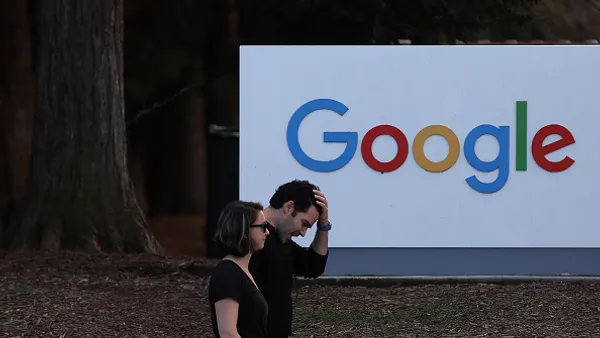Dive Brief:
- Demand-side platform The Trade Desk said audience measurement company Nielsen is the latest company to support the open-source tracking technology it is developing to replace third-party cookies. Trade Desk's Unified ID 2.0 aims to preserve the value of advertising while giving internet users greater control of their privacy, per an announcement.
- Unlike cookies, Unified ID 2.0 helps to measure audiences among advertising channels including streaming TV, browsers, mobile, audio, TV apps and devices with a single ID, offering more concise measurement. An independent group will govern the measurement solution to ensure that it's a neutral source of audience information.
- Finding an alternative to cookies has become more important this year, attracting a growing number of solutions, like data management platform Lotame's Panorama ID, which relies on deterministic audience data including customer IDs, emails and publicly available web information, and lets consumers opt out in real time among every digital touchpoint, per an announcement.
Dive Insight:
Trade Desk and Lotame's audience tracking methods are another sign that advertising technology companies are focused on identification solutions to replace third-party cookies and device identifiers. These efforts come as consumers seek greater control over their personal data, and lawmakers respond by enacting stricter rules on how the information is collected and shared. It remains to be seen if one solution with gain critical mass among advertising stakeholders or be preferred by consumers.
These efforts have become more important since Google in January announced that it would end support for third-party cookies in its Chrome browser by early 2022 unless the media and marketing industries developed another tracking method. Chrome has a global market share of 70% on desktop computers and 63% on mobile devices, according to Statcounter. Google's browser is a key gateway to the internet for billions of internet users.
Apple added to the pressure to find an alternative tracking method when it announced it would require app developers to get opt-in consent from its customers to access the Identifier for Advertisers (IDFA) that is assigned to every Apple device. The company this year delayed a plan to enforce the measure amid criticism from advertisers, publishers and ad tech companies. Even Facebook, which doesn't need IDFA to track people who log into its apps, criticized the plan for hurting smaller businesses using the tracking technology to target consumers through the Facebook Audience Network. More than half (56%) of marketers expect a negative effect from Apple's privacy change, per a study by AppsFlyer.
Because Facebook, Google and Amazon are among the "walled gardens" that collect vast troves of first-party data about consumers, they can sell targeted advertising without the need for third-party cookies or device identifiers. Critics say this distinction gives them an unfair advantage compared with other websites that sell advertising. Without a replacement for third-party cookies, an estimated $32 billion to $39 billion in ad spending will shift from the open web by 2025, the Interactive Advertising Bureau (IAB) predicted in February.














